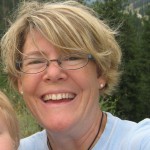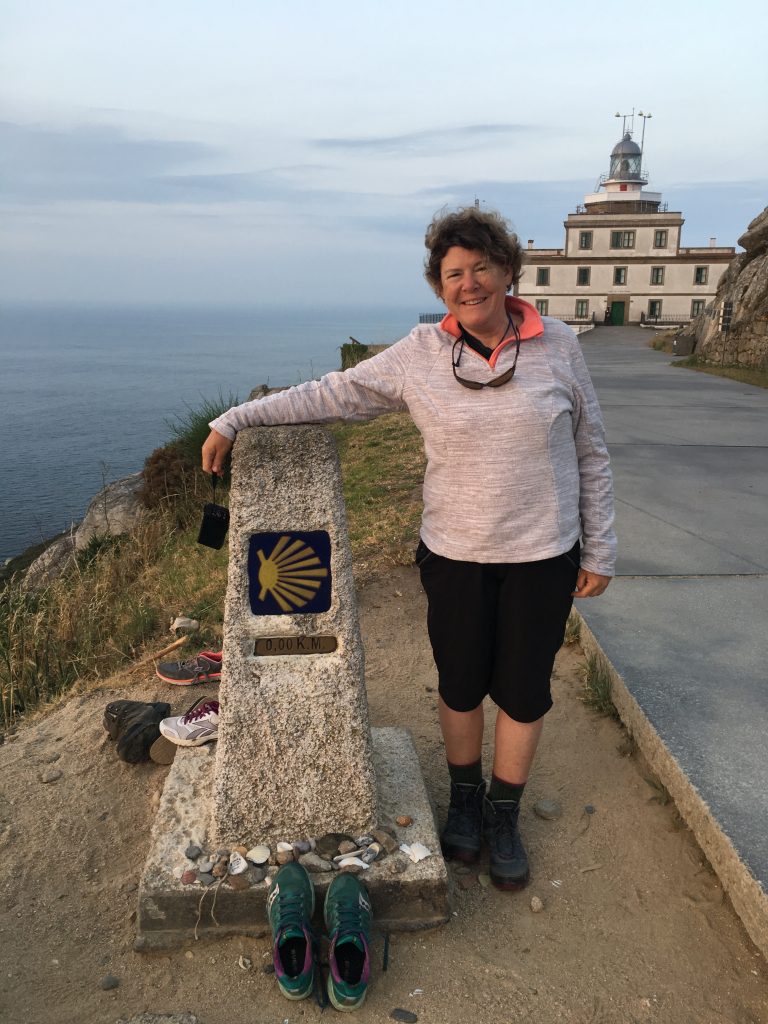Cable named Institute’s Associate Director for Experiential Education
February 4, 2018 Jaye E. Cable, chair of the Curriculum in Environment and Ecology (CEE) and professor in the Department of Marine Sciences in the College of Arts and Sciences was recently named associate director for experiential education at the UNC Institute for the Environment.
Jaye E. Cable, chair of the Curriculum in Environment and Ecology (CEE) and professor in the Department of Marine Sciences in the College of Arts and Sciences was recently named associate director for experiential education at the UNC Institute for the Environment.
“We are delighted Dr. Cable will lead our experiential education programs at the Institute,” said David B. Peden, interim director of the UNC Institute for the Environment and Harry S. Andrews Distinguished Professor of Pediatrics in the School of Medicine. “This is a new role, designed to enhance and expand environmental experiential education at UNC. The Institute looks forward to building these programs under Jaye’s proven leadership.”

The Institute has collaborated with CEE and UNC Study Abroad to provide field site immersion programs in six cities in North Carolina and abroad, as well as provide capstone courses and internships. Until now, all experiential education was focused largely on students in the CEE majoring in environmental science or environmental studies. Cable plans to expand the scope to other environmental programs on campus.
“This is a great time to think outside of the box with what we can do with experiential education,” said Cable. “There are a host of environmental programs outside of the CEE.”
Cable plans to expand field site opportunities and provide more semester-long immersion programs. In these programs, students can take a cluster of related courses and gain exposure to professionals working in a chosen field as well as perform hands-on research though a course or an internship.
“It’s a really nice to way to get a focused education on one topic for a semester,” Cable said. “It’s a win for the students. It’s a win for the departments. It’s a win for the whole campus, because students come out of these semester immersions with a really nice experience that is both intellectual and hands-on.”
Cable joined UNC-Chapel Hill in 2011 and assumed the role of chair of the CEE in 2012. As chair, she led efforts to enhance the curriculum in accordance with the changing demands of students, which included the development of degree tracks in energy and sustainability and a number of dual degree programs with various professional schools across UNC. Now, students can simultaneously get their bachelor’s degree in environmental science or environmental studies and a master’s degree in information science, public administration or mass communication. Cable hopes to add programs in law, public health and geospatial science.
“This dual degree approach has been phenomenal for the students—for opening their eyes to possible career pathways,” she said.
Under her leadership, enrollment in environmental majors in the College of Arts and Sciences has doubled and she is predicting another growth spurt in the coming year.
As a researcher, Cable is an expert in coastal hydrology and geochemistry. One of her current research projects, funded by the National Science Foundation, is examining the effects of Hurricane Harvey on Texas salt marshes. Cable has published widely with more than 60 journal articles in her field and advises master’s and doctoral students’ research. Jill Arriola and Kaylyn Gootman are her Ph.D. students. Arriola is studying carbon sequestration in salt marshes and Gootman is examining hyporheic exchanges processes in arid climate streams. The master’s student she co-advises, Lauren Goodman, is researching sharks in the Galapagos. A number of undergraduate students also work in Cable’s lab group. Alex Smith is doing his honors thesis on salt marshes and Savannah Swinnea, an IDEA summer intern, worked on research with Gootman in the fluids lab.
Cable earned her bachelor’s degree from the University of South Carolina in marine science with an emphasis in geochemistry and mathematics. After working a brief stint for the state government, Cable wanted to pursue an academic career and earned her doctorate from Florida State University in chemical oceanography. She was a post-doctoral researcher at the University of Florida for a two years before landing a position as an assistant professor at Louisiana State University’s Department of Oceanography and Coastal Sciences. She remained at LSU for 13 years and left as a full professor, prior to her role at Carolina.
Cable grew up in coastal South Carolina, the daughter of a local police officer and beloved teacher.
“Our idea of a good time on any given day in the summer was to walk through marshes in our best rubber boots and follow the fiddler crabs, chase the tide, collect driftwood, hunt for blackberries along the edge of the marshes, built forts—that is how I got introduced into marine sciences—growing up right on the intracoastal waterway,” she said.
Her mother’s students’ often shared pounds of the days catch and various marine life with the family and Cable was introduced to marine science and education “in one fell swoop,” she said.
Having not known anything different, she discovered in college that marine science was actually something you could do for a living.
“Before, I had no name for it,” she quipped.
Cable is an avid dog lover and can back-up a boat and trailer. Last summer she spent 2 months walking 500-miles on the Camino de Santiago trail in Spain. She lives in Chapel Hill with her husband Peter, two children, Hannah and Benjamin, and 9-month-old Treeing Walker Coonhound, Banks.
